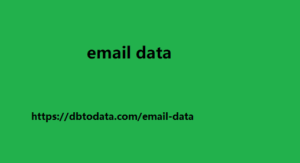By June 2, 2015, anyone who owns or manages a website had to take 5 minutes to figure out how to comply with the European Cookie legislation : the topic is thorny and – as always when there are regulations to interpret – quite complex if applied to the specific situations of each individual. Faced with the Cookie problem, the main question is: which cookies does your site use? [article updated October 2017] For those who have little time: the best (Italian) solution to solve the Cookie problem The Iubenda Plugin To automatically generate your privacy policy To solve the problem once and for all Free solution + 10% discount on future purchases.
Try the Iubenda plugin and let me know
Luca – For those who use WordPress, I also wrote an article on Cookie Law with WordPress and plugins but the available solutions are the same as those presented here, in fact. It is also interesting to note that since the end of March 2016 Iubenda has released a new Cookie Solution , complete with Analytics and exclusion from the Google Bot filter, so as to ensure correct examination and indexing of your site. Go to Iubenda from here to take advantage of the discount coupon, enter your site at the top and proceed: you will find both the privacy policy service and the one relating to Cookies . For those who want to learn more, here are some tools that can help clarify the Italian cookie law and identify the cookies used by your website.
The reference article in my opinion is definitely the one by
. Summing up in a very brief way, there are 3 types of cookies : 1. Technical cookies : used to provide a better service to users. Among these are also cookies that allow Google Analytics to function. WHAT TO DO: these cookies do not require hong kong email list prior consent from users, but you simply need to mention them on a privacy /information page. 2. A classic example: remarketing with Google or Facebook (Studio Samo explains what it is ).
Third-party cookies : finally these mysterious third-party cookies
An example that Mozilla Firefox reports is that of Facebook cookies, for example, linked to the Social sharing buttons. WHAT TO DO: emphasizes that prior consent is not required but it is good to make it explicit on the information page. How to understand which cookies your site uses I am not a lawyer, so I tread carefully on this issue, relying on authoritative opinions.
In this regard, I would like to point out some possible methods… 1. They are free Add-Ons. In addition to these 2, there is also a specific tool such as WebCookies.org .
Attacat Cookie Audit Tool Attacat Cookie
Audit Tool is a Chrome add-on that detects cookies in use. It is very easy to use, as you just need to copy and paste your domain into the appropriate field and start the search. Once installed, close all other tabs, open your site and press “ Start Recording ”. Then navigate through the pages and simulate what your visitor would do. Once finished, press “ Stop Recording ”. Well, observe “ View Report ” to find analysis and monitoring tools the cookies used by your site! Easy, right? It’s an indispensable tool if you want to know exactly which cookies your site uses. 3.
Analyze the site’s source code A valid alternative that excludes downloading or signing up for external services is to identify the number and type of cookies by inspecting the code of a website , directly from the browser. Again, the process is quick: visit the website you are searching for. With the mouse, right-click and proceed to “inspect” or “analyze element” (or similar wording; it depends on the browser used); From the analysis that will open directly in the browser, you will find the Cookie list inside the “Resources” menu item. If you perform the analysis with Google Chrome, you must follow this path: Application . Analysis of cookies installed by the site with browser A screen like this will open.
Here’s where to find the list of cookies used
A convenient and professional solution to the Cookie Law problem Although these tools do their job, a more convenient and professional solution in my opinion is represented – as I said at the beginning – by Iubenda , the Italian reference for the job data management of privacy policies of your websites.
One thing I have noticed, in fact, is that the various free tools for detecting cookies sometimes give slightly different results or are difficult to understand. What to do with this list of cookies, then? The list of cookies installed by the site will be declared on your “cookie policy” page . But that’s not all, the most difficult part is missing: you also need to be able to use this list and ensure that these cookies are disabled for the user who requests it. If you are not a web developer, the matter risks becoming unnecessarily complicated.

